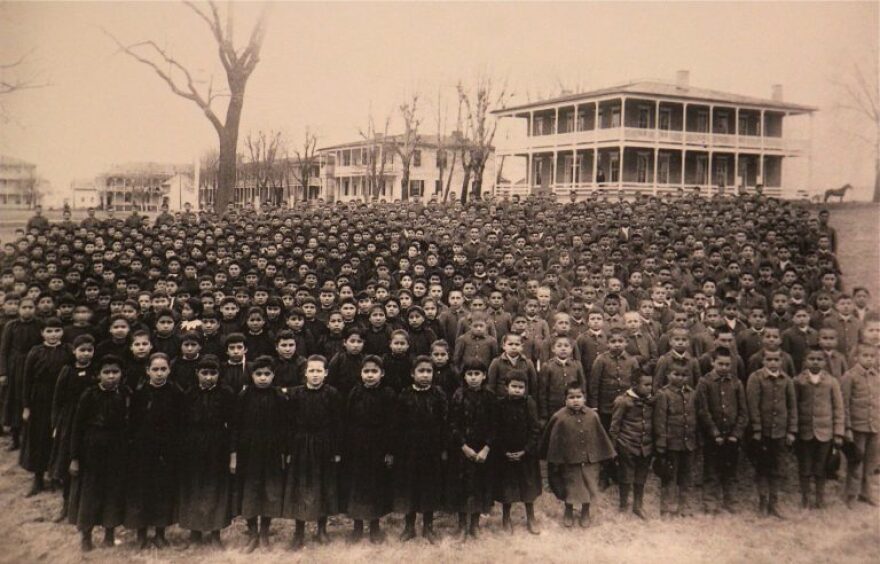Native American leaders in West Michigan addressed past hurt and future healing on Indigenous People's Day. The event, Resiliency Through Trauma: The Boarding School Era, was held at Grand Valley State University on Monday, October 11 and addressed the hardship and historical trauma endured by Indigenous people across the nation at the hands of federal boarding schools.
Boarding schools primarily ran from 1879 to the mid 1980’s. By 1926, researchers found nearly 83% of school-age Native American children were attending.
"The government discovered that it was more costly to go to war to destroy Indians, so they said 'Hey we can educate these Indian students…Americanize them," Levi Rickert of Prairie Band Potawatomi Nation told WGVU in an interview Friday, "The mantra really was kill the Indian save the man, meaning kill the culture."
Lin Bardwell, Native American Student Initiative Coordinator at Grand Valley State University, wanted to bring this conversation surrounding historical trauma to students on campus.
"I think it has everything to do with our current existence. If you look at our demographics, We have the highest rates of teen suicide. We have the highest rates of diabetes, lowest retention rates in higher education," Bardwell explained, "For us, we feel like this stems from the whole era of just genocide or assimilation,” Bardwell said.
Dr. Suzanne Cross of the Saginaw Chippewa Indian Tribe led Monday afternoons discussion, sharing research she's collected through interviews with past boarding school students. Cross' mother attended a boarding school in her youth, a hardship Cross says carries over generations.
The event provided education surrounding boarding schools and their purposes, written testimonies from previous students, validation and understanding of trauma and conversations towards healing.
"This is an important topic to our community because we as a community don’t talk about it and so when you don’t talk about such things, the healing ceases to happen," Bardwell said, "...The more we discuss the true history of our past, the less we are to repeat it."
Bardwell added that the somber conversation wasn't a typical celebration of Indigenous People's Day but does point to the resilience of the Native American community. She encourages individuals to join in a joyous celebration at Riverside Park from 3:00-7:00pm on Monday evening.





